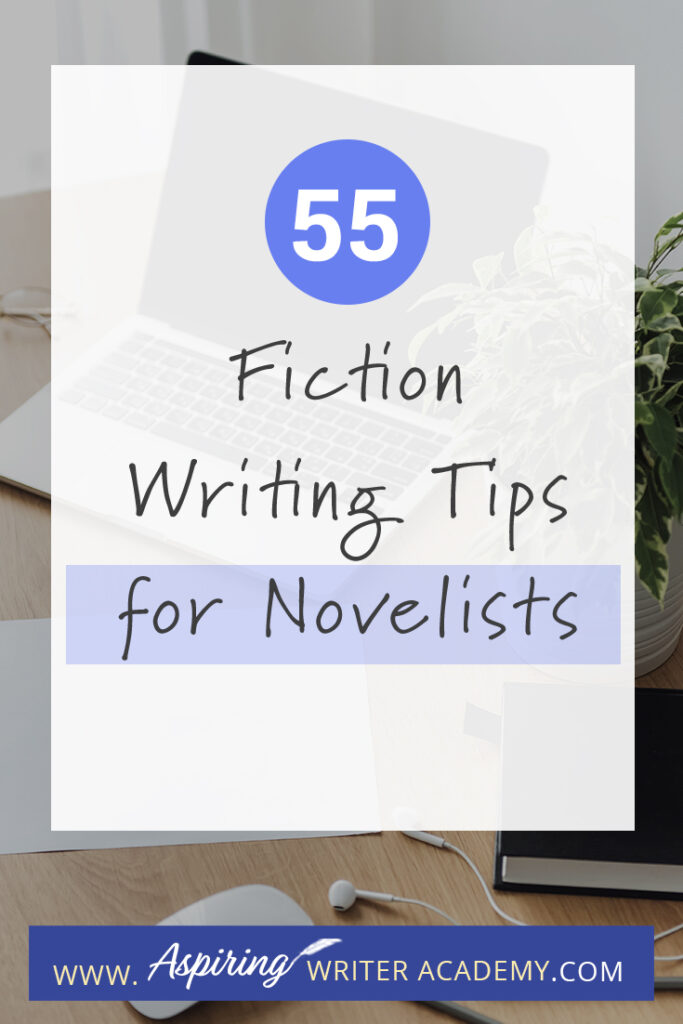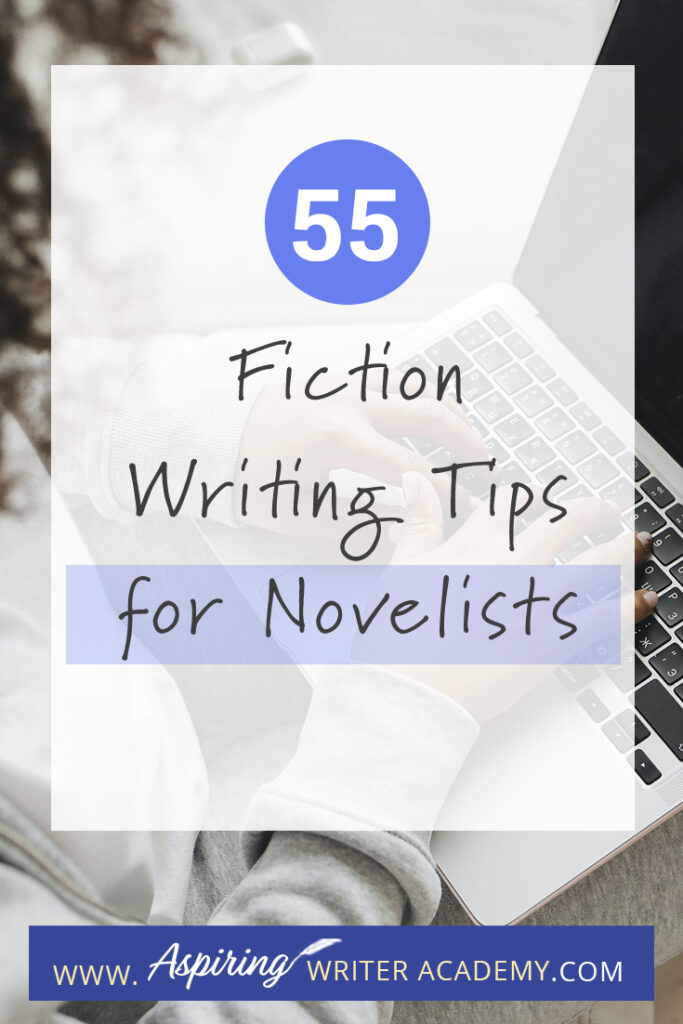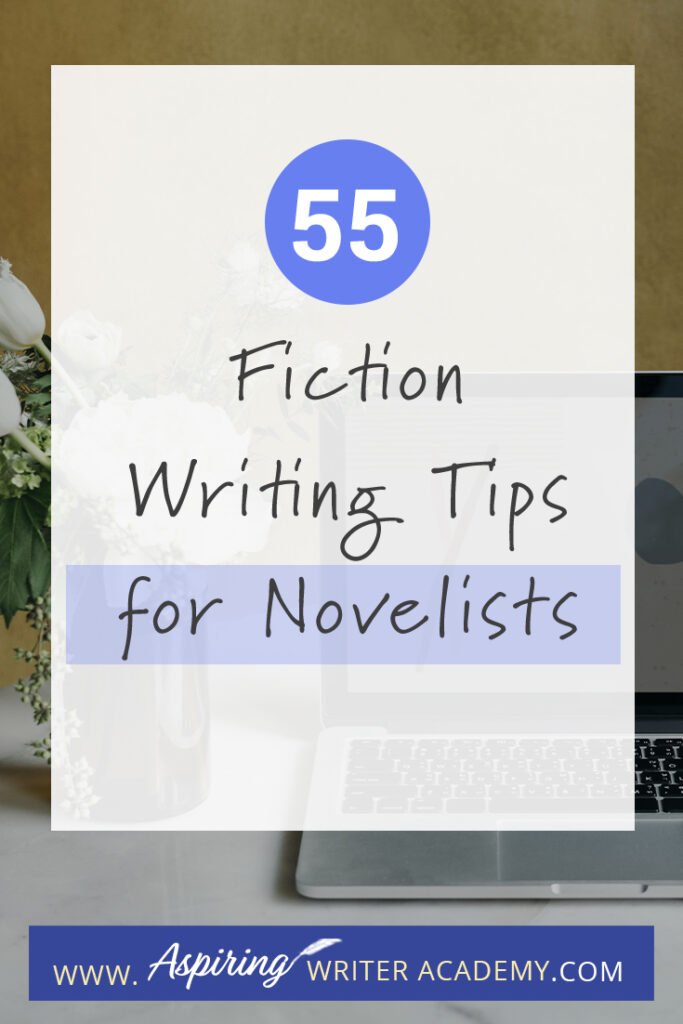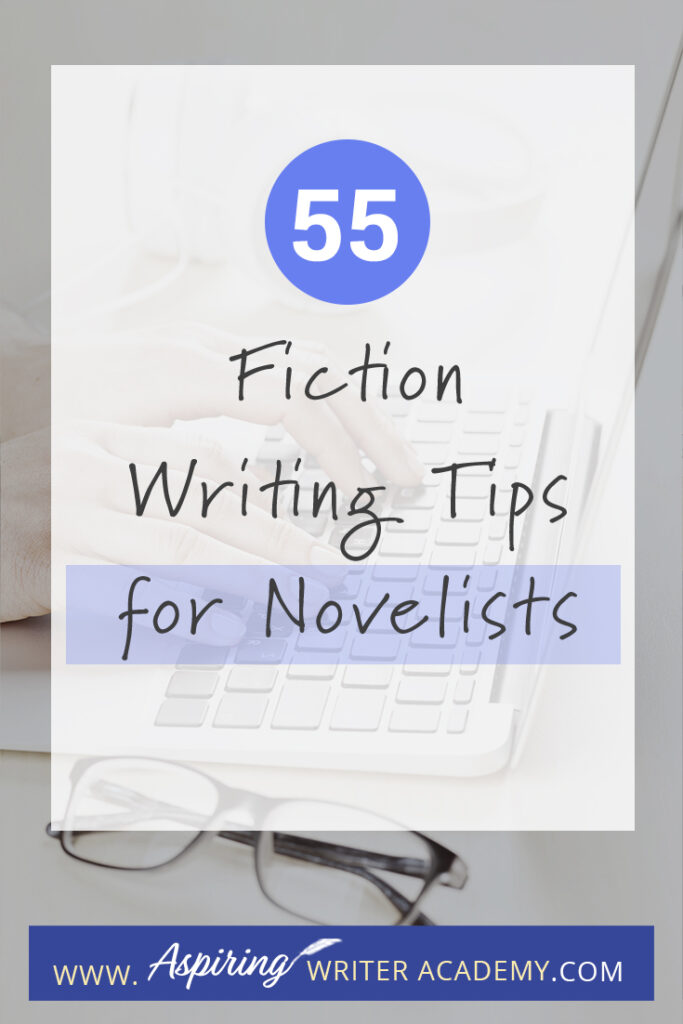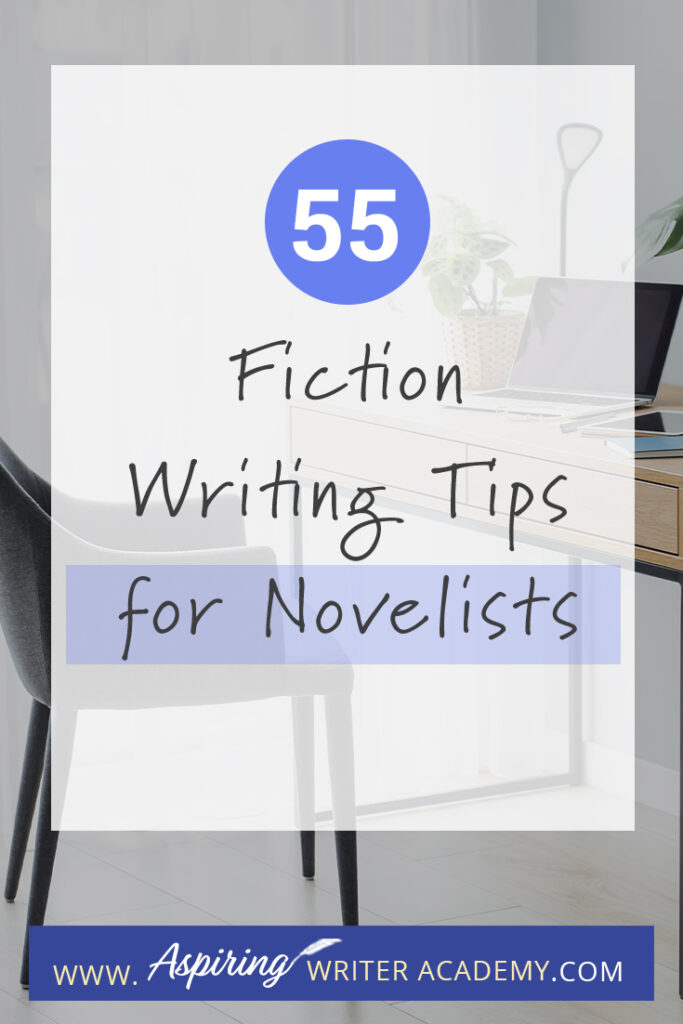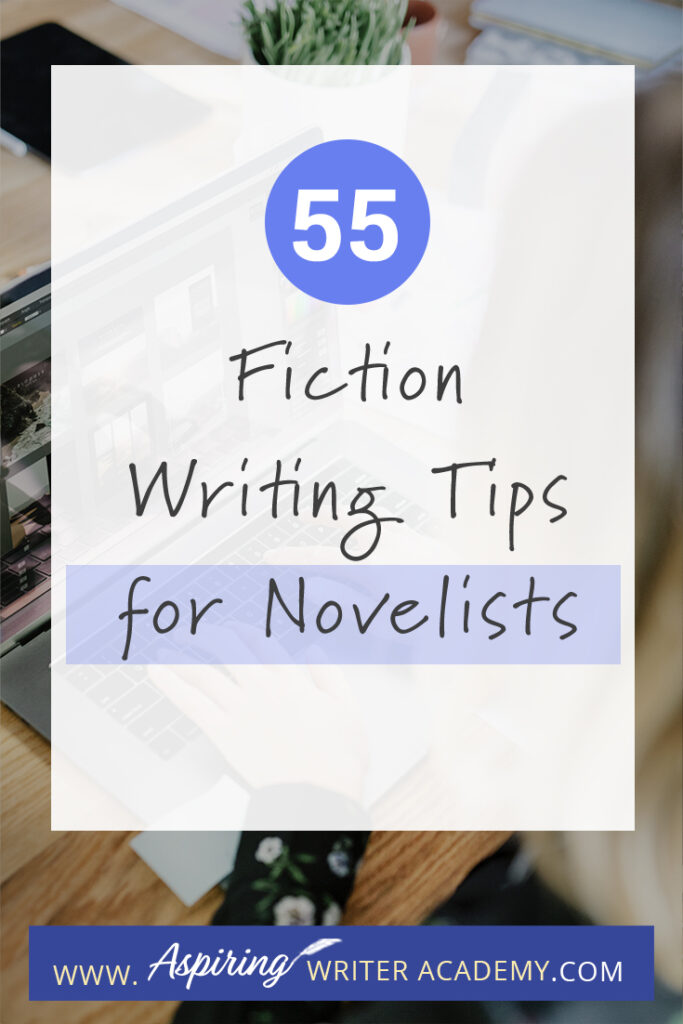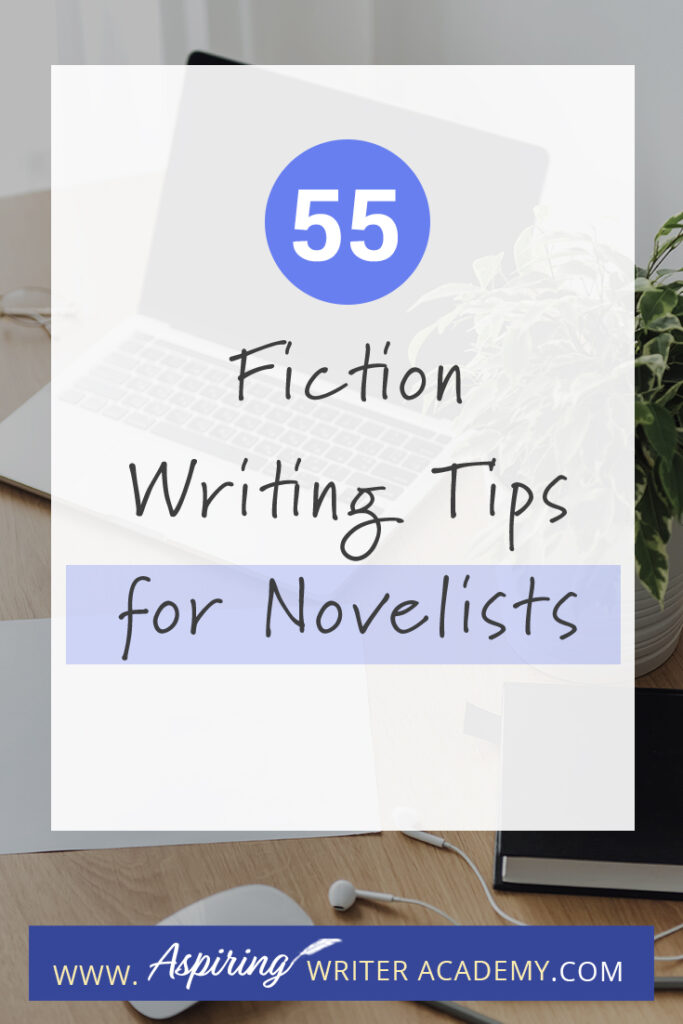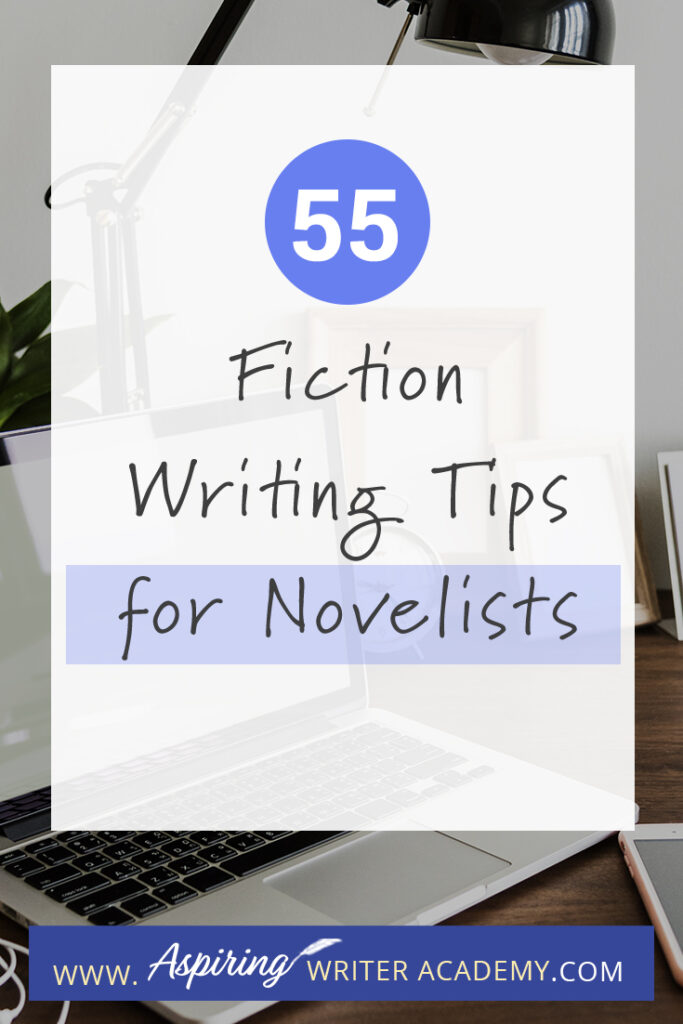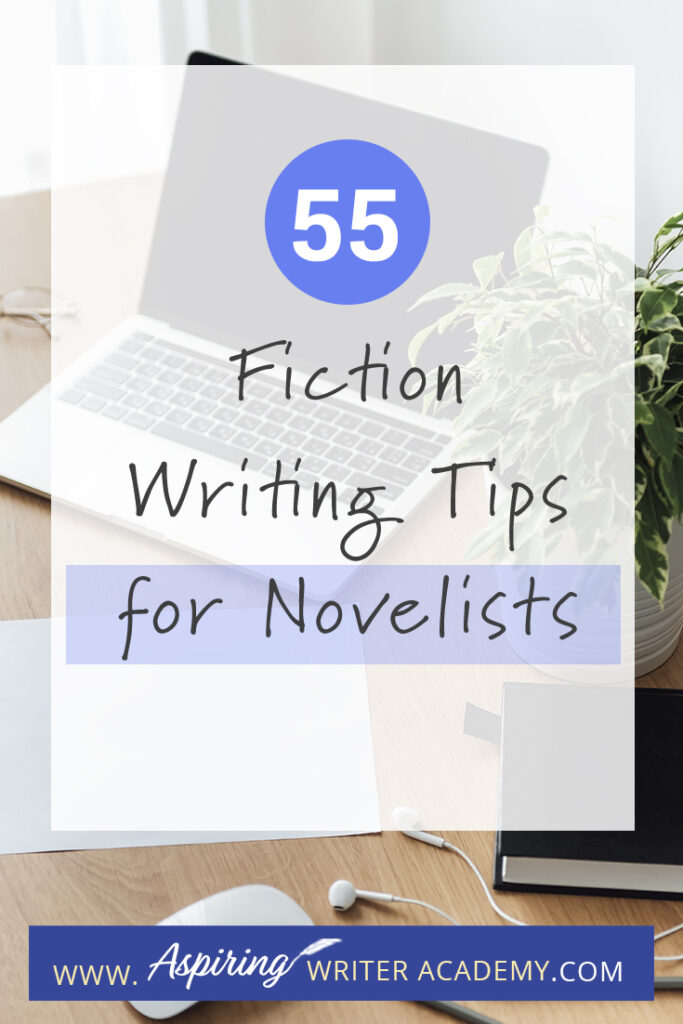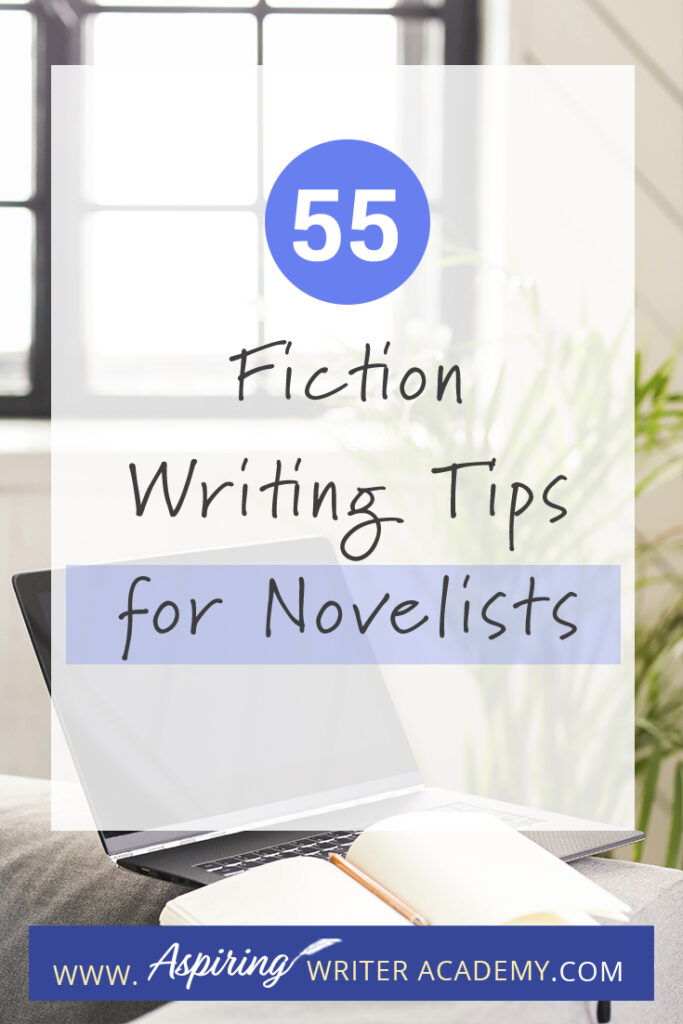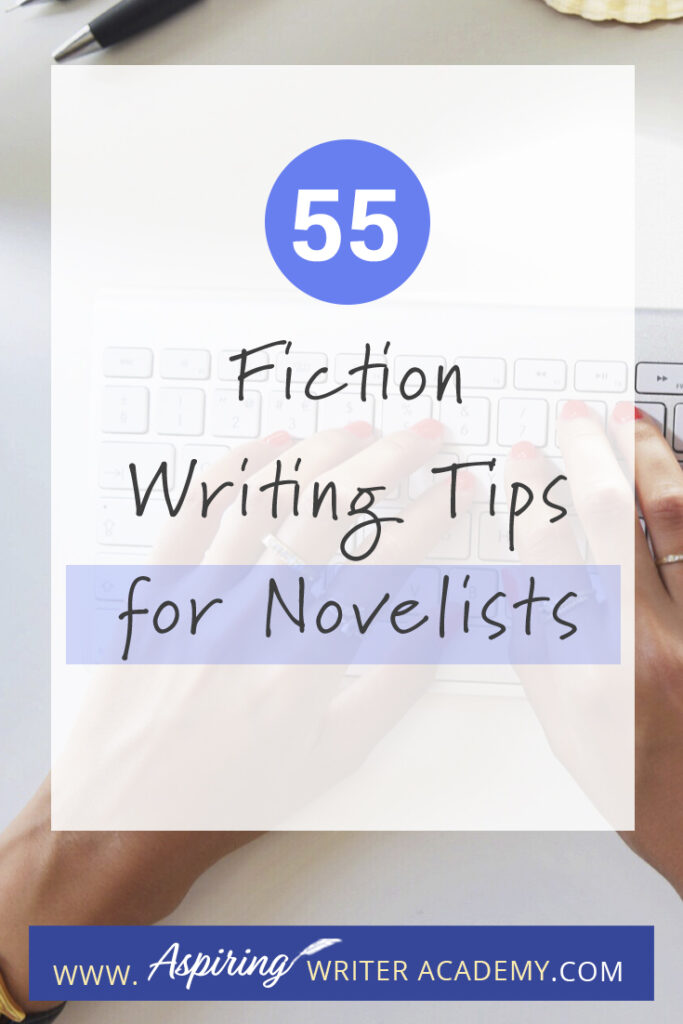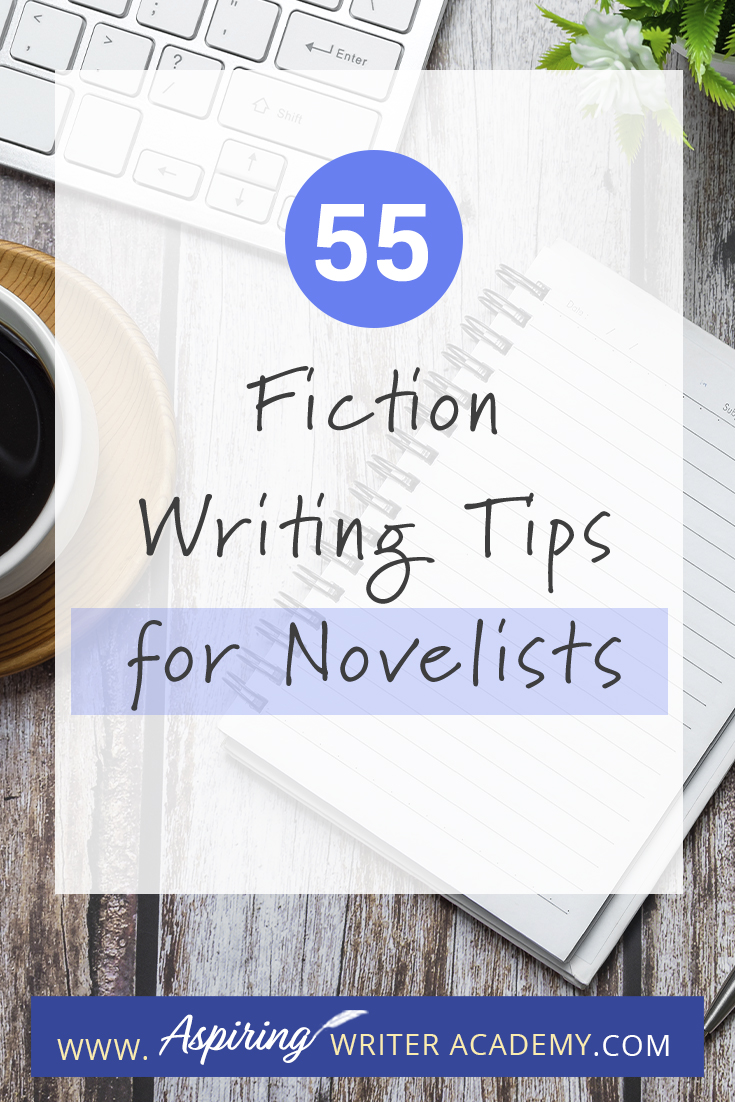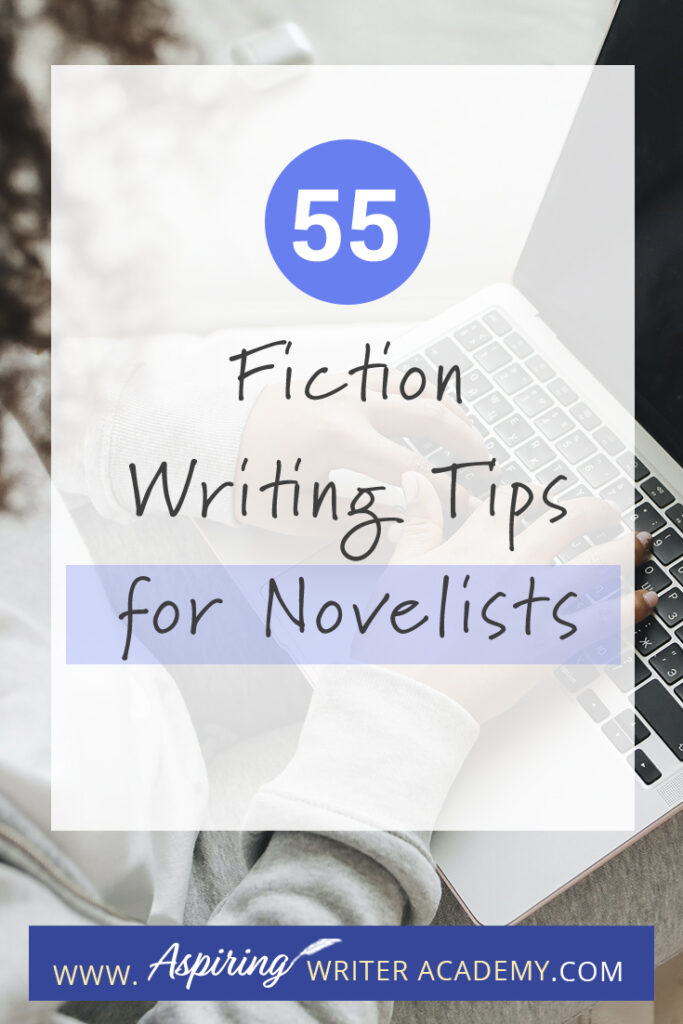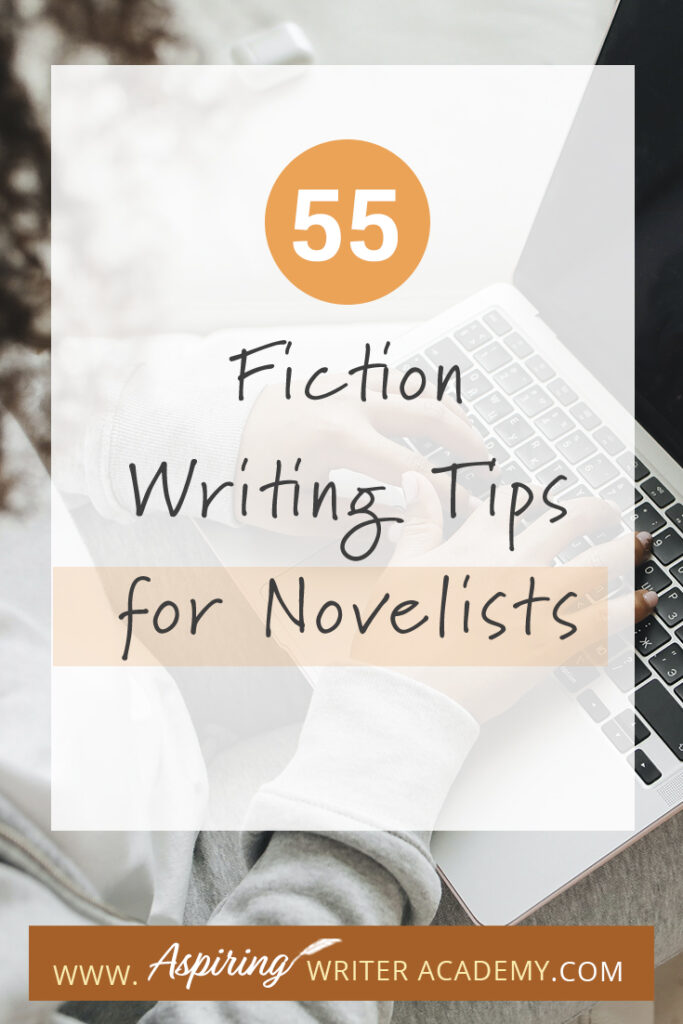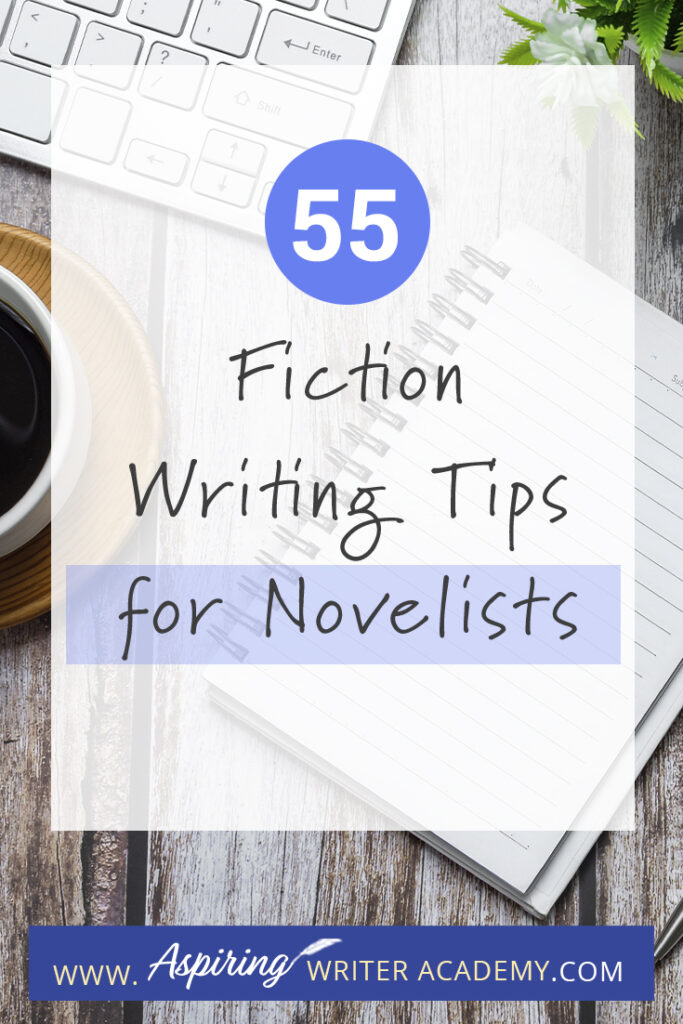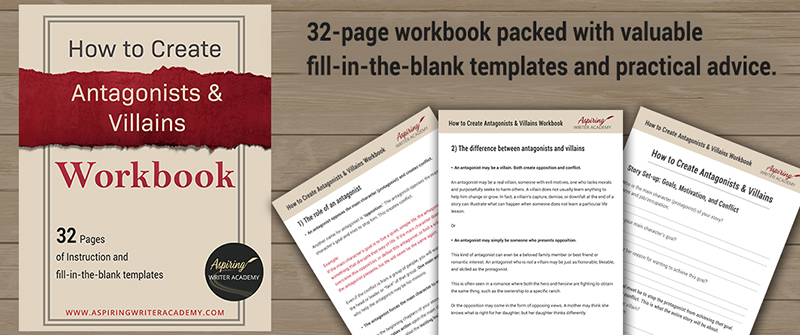55 Fiction Writing Tips for Novelists

Are you a novelist looking to take your writing to the next level? Writing a novel is hard work, but with the right tips, it doesn't have to seem so daunting. From structure and characterization to dialogue and word choice, this article will provide you with 55 fiction writing tips to help inspire and give some quick writing advice to help you along your writer journey.
Fiction Writing Tips
- Utilize beta readers to get feedback on your writing before publishing.
- Get involved in writing communities online to find support and feedback.
- Keep a list of potential book titles and cover ideas to help with book marketing.
- Consider self-publishing if traditional publishing isn't working out for you.
- Remember that writing is a craft that takes time and practice to master. Keep at it and don't give up!
- Write for your audience, but also write the story you want to tell.
- Use research to add authenticity and depth to your writing, but avoid overloading readers with too many details.
- Use active voice instead of passive voice to make your writing more engaging.
- Use beta readers or an editor to catch typos and grammatical errors before publishing.
- Attend book signings and other literary events to connect with readers and fellow writers.
11. Use social media to connect with readers and build a following before your book is even released.
12. Avoid filler words and phrases to make your writing more concise and impactful.
13. Show your work to a variety of people to get different perspectives and feedback.
14. Use humor, if appropriate, to add personality and depth to your writing.
15. Remember that writing is a journey, and enjoy the process along the way.
16. Use beta readers or an editor to check for inconsistencies in your story.
17. Structure your scenes to make your story more dynamic and immersive.
18. Create a unique voice for your characters to make them memorable.
19. Write in active and present tense to create immediacy and tension.
20. Use metaphors and similes to make your writing more descriptive and memorable.
21. Keep track of story ideas and inspiration in a notebook or app.
22. Use sensory language to create a mood and atmosphere in your writing.
23. Research book cover designs to make your book stand out.
24. Attend writing conferences to learn from experts and network with other writers.
25. Celebrate your writing milestones, no matter how small, to stay motivated and inspired.
26. Use beta readers or an editor to get feedback on pacing and plot.
27. Write a strong ending that satisfies readers and ties up loose ends.
28. Use different points of view to create depth and complexity in your story.
29. Use cliffhangers and foreshadowing to keep readers engaged and interested.
30. Use social media to build relationships with readers and potential fans.
31. Use strong verbs and active voice to make your writing more powerful.
32. Write with purpose and intention to make your story impactful.
33. Use sensory language to immerse readers in your story world.
34. Read and analyze books in your genre to learn from successful authors.
35. Remember that writing is a creative process and allow yourself to experiment and take risks.
36. Use strong visuals and descriptions to paint a picture in your reader's mind.
37. Use conflict and tension to drive your story forward.
38. Write a clear and concise pitch to use in your book marketing efforts.
39. Use beta readers or an editor to ensure your story has a clear and consistent theme.
40. Create a website or blog to showcase your writing and build your brand.
41. Use social media to engage with readers and promote your book.
42. Use dialogue tags to convey emotion and tone.
43. Use active verbs and avoid adverbs to make your writing more concise and impactful.
44. Use flashbacks or backstory to give your characters depth and motivation.
45. Embrace feedback and criticism to improve your writing and grow as a writer.
46. Use plot twists and surprises to keep readers engaged and interested.
47. Create well-rounded and relatable characters to keep readers invested in your story.
48. Use sensory details to create a strong sense of place and setting.
49. Use social media ads to reach a wider audience with your book promotion.
50. Use beta readers or an editor to ensure your writing is consistent and flows well.
51. Use humor, if appropriate, to add levity and personality to your writing.
52. Create a strong author brand to help build a loyal following.
53. Use writing prompts to spark creativity and inspiration when you're feeling stuck.
54. Read books outside of your genre to learn from different writing styles and techniques.
55. Always be open to learning and improving your craft.
Writing a novel is a daunting task that requires passion, dedication, and discipline. We hope that these 55 Fiction Writing Tips for Novelists, give you some ideas and inspiration that you can apply to your own writing.
Do you have any additional tips to share? Feel free to leave a comment below!
Do you find it difficult to create compelling antagonists and villains for your stories? Do your villains feel cartoonish and unbelievable? Do they lack motivation or a specific game plan? Discover the secrets to crafting villains that will stick with your readers long after they finish your story, with our How to Create Antagonists & Villains Workbook.
This 32-page instructional workbook is packed with valuable fill-in-the-blank templates and practical advice to help you create memorable and effective antagonists and villains. Whether you're a seasoned writer or just starting out, this workbook will take your writing to the next level.
Our Goal for Aspiring Writer Academy is to help people learn how to write quality fiction, teach them to publish and promote their work, and to give them the necessary tools to pursue a writing career.
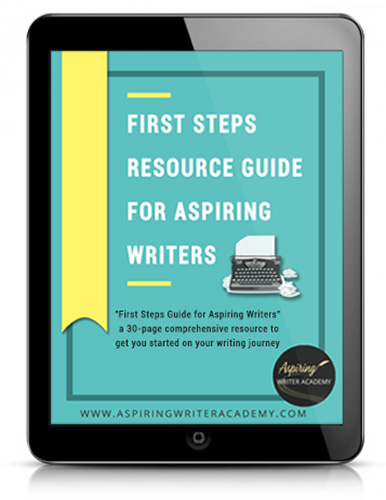
ENTER YOUR EMAIL
TO GET YOUR FREE
"First Steps Guide for Aspiring Writers" a 30-page comprehensive resource to get you started on your writing journey.
Other Blog Posts You May Like
How to Write a Novel While Working Full Time
How to Manipulate Pacing to Increase the Intensity of Your Scenes in a Fictional Novel
Learn to Plot Fiction Writing Series: Story Analysis of the Disney movie “Frozen”
Fiction Writing: The 3 Different Levels of Editing
Learn To Plot Fiction Writing Series: Story Analysis of the Movie “Top Gun: Maverick”
5 Reasons Your Writing Sucks! (And How to Fix It)
How to Brainstorm a New Novel Using Goal, Motivation, and Conflict
How to Write Query Letters (for Fiction)
Slingshot Week: How to Set New Goals for Writing in 2023
Novel Writing Tips: Don’t Bury the Dialogue!
How to Choose Characters to Populate Your Fictional Story
Fiction Writing: Critique Group Etiquette & Warning Signs of a Good Group Gone Bad
How to Prep for NaNoWriMo (National Novel Writing Month)
Fiction Writing: How to Plot a Story where the Antagonist is an ‘Invisible Foe’
Fiction Writing: How to Find a Critique Partner/Group
How to Research Information for a Historical Novel
7 Steps to Begin Writing a New Fictional Story
Learn to Plot Fiction Writing Series: Story Analysis of the movie “Signs”

